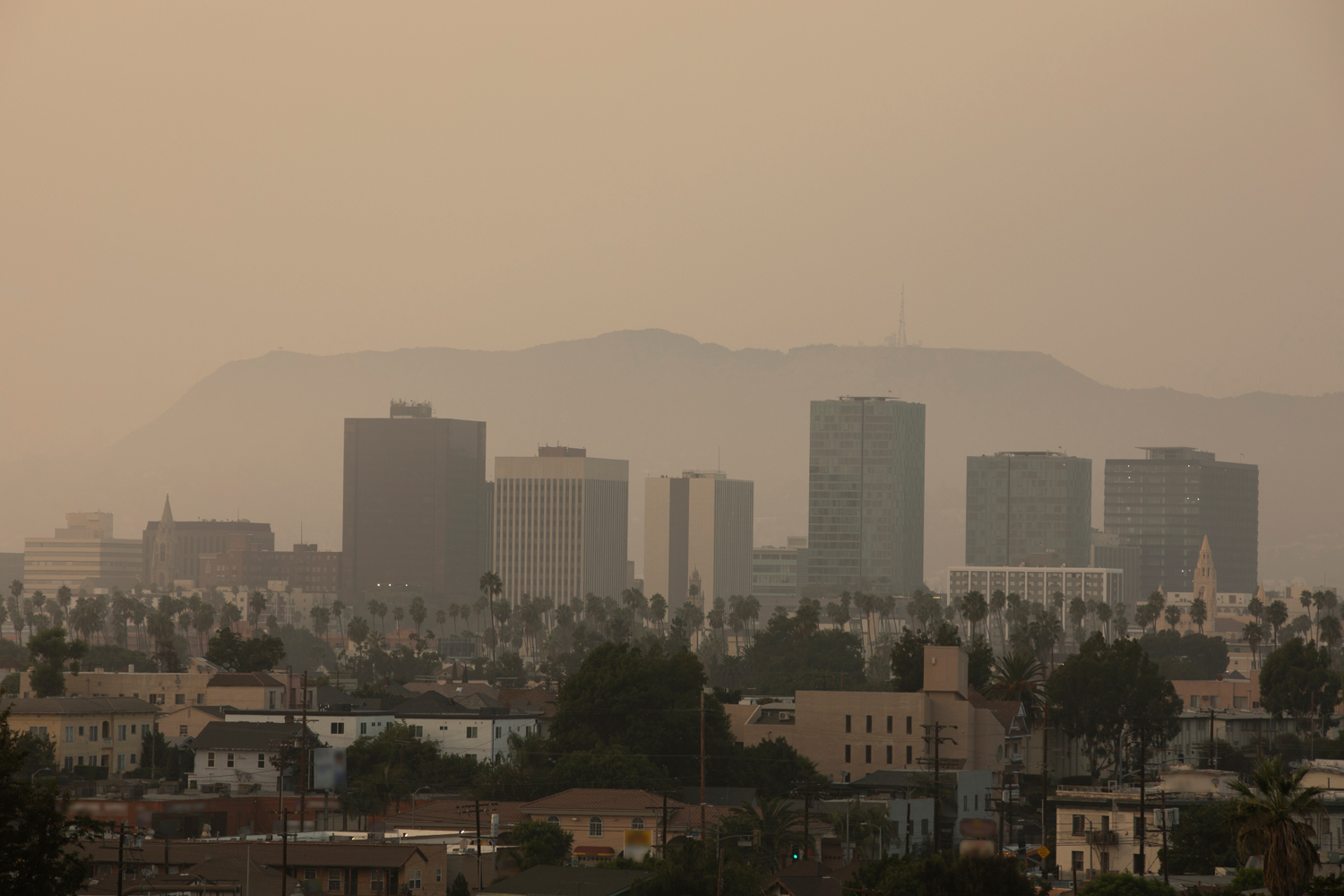PEOPLE EXPOSED TO A WILDFIRE while recovering from surgery for non-small cell lung cancer (NSCLC) had worse overall survival, compared with patients who weren’t exposed to a wildfire, according to a study published online July 27 in JAMA Oncology. The study results are noteworthy, considering that catastrophic wildfires are becoming increasingly prevalent and a major health concern across the country.
Using NASA satellite data, the study identified 466,912 patients who were in close proximity to a wildfire after being discharged from the hospital following lung cancer surgery. “Patients who had a wildfire close to their house had worse overall survival up to a year after being discharged from the hospital, compared to unexposed patients,” says Leticia Nogueira, scientific director of health services research with the American Cancer Society and the study’s lead author. The association between wildfire exposure and worse overall survival in patients recovering from lung cancer surgery was significant, regardless of the stage of diagnosis.
People exposed to wildfire within three to six months of the date of hospital discharge had the worst overall survival, but there was still an effect for those exposed to wildfire even a year later, compared with patients recovering from NSCLC surgery without wildfire exposure. “We expected to see an association three to six months after hospital discharge, but it surprised us to see an association up to a year out,” Nogueira says.
Wildfire smoke from burning trees and manmade materials contain fine carbon-based particulate matter of 2.5 (PM2.5) that can be small enough to travel to alveoli, small air sacs in the lungs. “The combustion particles are similar to inhaled tobacco smoke, but at a significantly lower concentration and without the nicotine,” says John Balmes, a national spokesperson for the American Lung Association and professor of environmental sciences at University of California, Berkeley.
People with lung concerns may be especially vulnerable to the effects of wildfire smoke, but there are ways to protect yourself.
If you live in a wildfire-prone area or downwind from one, there are several things you can do to reduce your exposure to wildfire smoke during a catastrophic event. John Balmes, a national spokesperson for the American Lung Association and professor of environmental sciences at University of California, Berkeley, offers these strategies to help you breathe easier:
- Stay indoors with the windows closed. If you must go outside during an air quality alert, wear an N95 mask. It can filter out harmful particulate matter in wildfire smoke.
- Improve your home’s indoor air quality. Add a fine-mesh air filter with a minimum efficiency reporting value (MERV) 13 rating to your home heating or cooling system to filter out harmful particulate matter. Most home central air forced air systems will accommodate the rectangular, one-inch filter that slides underneath or beside the furnace fan. They are available at hardware stores for about $12.
- Create clean-air rooms. Use a portable high efficiency particulate air (HEPA) air filtration unit in rooms in your home where you spend the most time, such as your home office area and your bedroom. Look for a HEPA filtration unit with a MERV rating of 13 or higher. Match the size of the portable HEPA air filtration unit to the size of your room, which is noted on the product label in square feet.
HEPA units cost as little as $200. If that’s not in your budget, you can create a do-it-yourself HEPA unit by attaching a MERV 13 filter to a box fan with duct tape and blowing the fan in your designated clean-air room, Balmes says.
But Nogueira notes that the hazards involved with wildfire exposure go beyond just the intake of smoke. They include the trauma of having to evacuate, or even preparing for the possibility, and the mental impacts of the threat to your property and your finances. “Because of the limited data available to us, we couldn’t tell if worse survival was due to the smoke, a mental health impact, trauma or the financial impacts of wildfire exposure that was associated with worse survival,” Nogueira says.
In the meantime, Nogueira recommends that lung cancer patients and patients with other types of cancer with cardiovascular conditions living in wildfire zones talk with their doctor about creating a disaster preparedness plan. She also hopes this study will ignite the oncology community’s interest in the effects of wildfires on cancer patients.
“There hasn’t been much research focused on this type of emergency preparedness for medically vulnerable populations, such as lung cancer patients or even asthma patients,” Nogueira says. “But now that we have shown this association, we are hoping future studies and cancer health registries will begin collecting information to evaluate what can be done to protect their health and safety during wildfires.”
Cancer Today magazine is free to cancer patients, survivors and caregivers who live in the U.S. Subscribe here to receive four issues per year.





